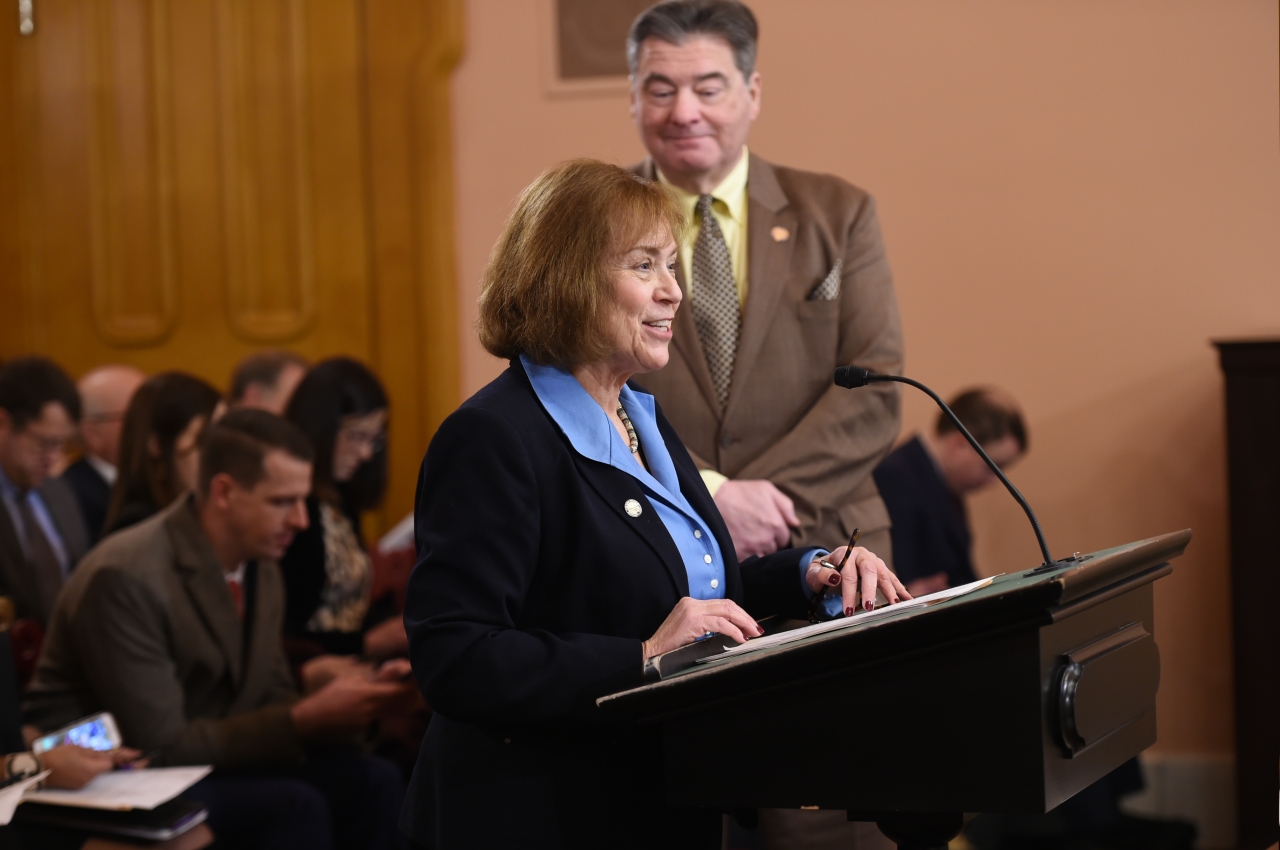Representative Manning Testifies for Improvements to Children's Crisis Care Facilities

To help address the foster care issue in Ohio, State Rep. Gayle Manning (R-North Ridgeville) seeks to provide regulatory relief for crises nurseries, while also being committed to the safety of children. Manning spoke to the Health Committee on Wednesday regarding the importance of the legislation.
“For example, due to mandated childcare staffing ratios, nurseries must often prevent staff from leaving the facility even if ill or to transport children in an emergency,” Manning said in testimony. “House Bill 408 will allow for administrative staff, interns and volunteers that have received proper training and are under the childcare supervisors to count toward staff ratios for up to three hours in emergency situations, staff illness or inclement weather until backup childcare staff can arrive.”
Manning also noted that these services have had a significant increase in demand that the nurseries provide, which is a reason behind the introduction of the bill.
Crisis nurseries provide free temporary, non-custodial care to children newborn to 12 years old and work with parents to overcome family crises. There are three crisis nurseries currently licensed by the Ohio Department of Jobs and Family Services: Providence House in Cleveland, Blessing House in Lorain, and Brigid’s Path in Dayton. Sister Mary, of the Blessing House in Lorain, was pleased to see the improvements to crisis nurseries within the legislation.
“We are grateful for the support of Representative Manning and Representative Patton for House Bill 408, which is the crisis nursery legislation,” said Sister Mary. “The proposed legislation enhances our efforts to provide care for the children who need a safe and loving place to call home for a period of time. We strive to meet their many needs and to continually improve the services we offer. Efforts to support and stabilize families is a key aspect of our Blessing House mission. Caring for the children and working with the parent/guardian increases the possibility of keeping families together.”
To improve the efficiency of crisis nurseries, other critical provisions of the legislation include:
- Permitting volunteers and contracted transportation providers that have passed a background check and received training to provide transportation for children when needed;
- Adding both the “Family Preservation Center” and “Residential Infant Care Center” subcategory licensures to recognize there are two established crisis nursery models in the state – this designation allows each model to work with the Department of Job and Family Services on additional guidelines for advanced services for children and families in their care;
- Increasing the time that children can stay at a crisis nursery from 60 days to 90 days;
- Specifying that placement of a child by a public child service agency at a crisis nursery will be entered as a respite or transitional stay under the statewide automated child welfare information system (SACWIS), which is housed within JFS. This is important for local county children services departments that may not otherwise want to utilize services with a crisis nursery as the stays are often short and could have negative consequences with federal funding;
- Include crisis nurseries in the SORN residency restrictions already established for schools and day-care centers.
“We want to ensure that through this legislation, crisis nurseries can help further alleviate the foster care crisis throughout the state by increasing those families and children served in our communities,” said Manning.







